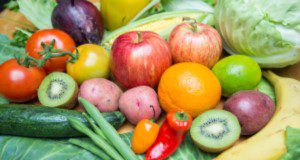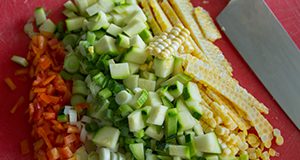Las dietas basadas en plantas se recomiendan para reducir el riesgo de enfermedades crónicas. Una dieta vegetariana es una dieta basada en plantas compuesta de vegetales, frutas, granos integrales, legumbres, nueces y semillas, con o sin alimentos a base de lácteos y huevos. Si se excluyen todos los alimentos de origen animal, se considera una dieta vegana. Las dietas vegetarianas y veganas bien planificadas pueden mejorar la salud durante todas las etapas de la vida, incluida la edad adulta. Sin embargo, cuando se sigue una dieta vegetariana como adulto mayor, se debe prestar especial atención a los cambios en las necesidades nutricionales relacionadas con la edad.
This new 4-page article is a translation of FSHN19-1/FS317, Vegetarianism and the Older Adult. Written by Kelly Johnston and Wendy J. Dahl, translated by Daniela Rivero Mendoza, and published by the UF/IFAS Food Science and Human Nutrition Department.
https://edis.ifas.ufl.edu/fs378
Tag: Kelly Johnston
Vegetarianism and the Older Adult
Vegetarian diets have become more and more popular in recent years, but there is a common concern that such a diet may not provide the adequate amount of nutrients. This 3-page document discusses this misconception and explains the various benefits of a vegetarian diet for older adults. Written by Kelly Johnston and Wendy J. Dahl and published by the UF/IFAS Department of Food Science and Human Nutrition, January 2019.
http://edis.ifas.ufl.edu/fs317
Dietary Guidelines for Americans 2015–2020: A Summary
About half of all adult Americans have at least one chronic disease that could be prevented. Many of these preventable chronic diseases are related to poor eating and physical activity habits. The good news is that the risk of chronic diseases, such as heart disease, high blood pressure, and type 2 diabetes, can be reduced with the help of the 2015 Dietary Guidelines for Americans, which is described in this five-page fact sheet. Written by Kelly Johnston and Karla P. Shelnutt and published by the Food Science and Human Nutrition Department.
http://edis.ifas.ufl.edu/fs298


